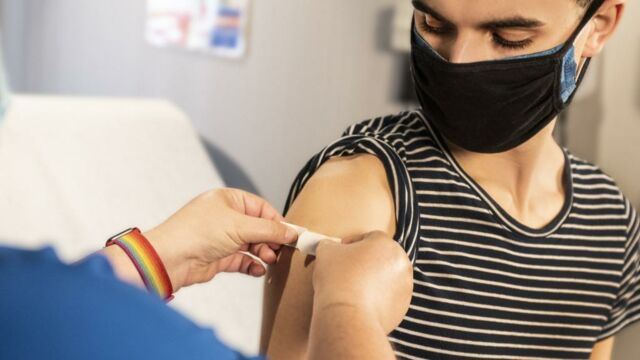New research provided by samples taken in the US has shown that Pfizer's COVID vaccine may pose a higher risk of developing a rare heart condition to teenage boys by up to 14 times.
Discover our latest podcast
A heart transplant to be required?
The condition is questions is called myocarditis—an inflammation of the heart muscle. It is usually triggered by a virus and, in most cases, the illness goes away on its own without further complications. However, there can be damage to the heart by impeding it to pump blood properly and, as a result, require a heart transplant.
The new findings have come out amid growing concern, here in the UK, that children should not be vaccinated until conclusive research has been done. Professor Robert Dingwall, a professor of sociology at Nottingham Trent University and former Government explains that:
The myocarditis risk does seem to be higher in boys but these are very small numbers to shape a policy around. If anything, it supports the JCVI position of waiting to see what emerges from the US before making any wider recommendations for UK children.
Should children get vaccinated?
The study, which was published in JAMA Cardiology, was based on an analysis of 15 children of which all were struck down with myocarditis. All experienced chest pain which started a couple of days after getting jabbed and lasted up to nine days. Professor Helen Bedford, expert in children's health at University College London Great Ormond Street Institute of Child Health, warned against jabbing children for this very reason:
The real issue here is whether we should be vaccinating children at all. Children are at very small risk of Covid so the question is who would benefit if they are vaccinated? Large parts of the world have no access to vaccine at all, even for health care workers, but are at much greater risk from disease.
Without vaccination, the infection will continue to circulate with the real possibility of emergence of variants which may evade current vaccines and then impact even on highly vaccinated populations.
And added:
This is a global issue and I think there is a strong case for the UK to set an example by giving vaccine to other countries before boosting adults or vaccinating children here.















